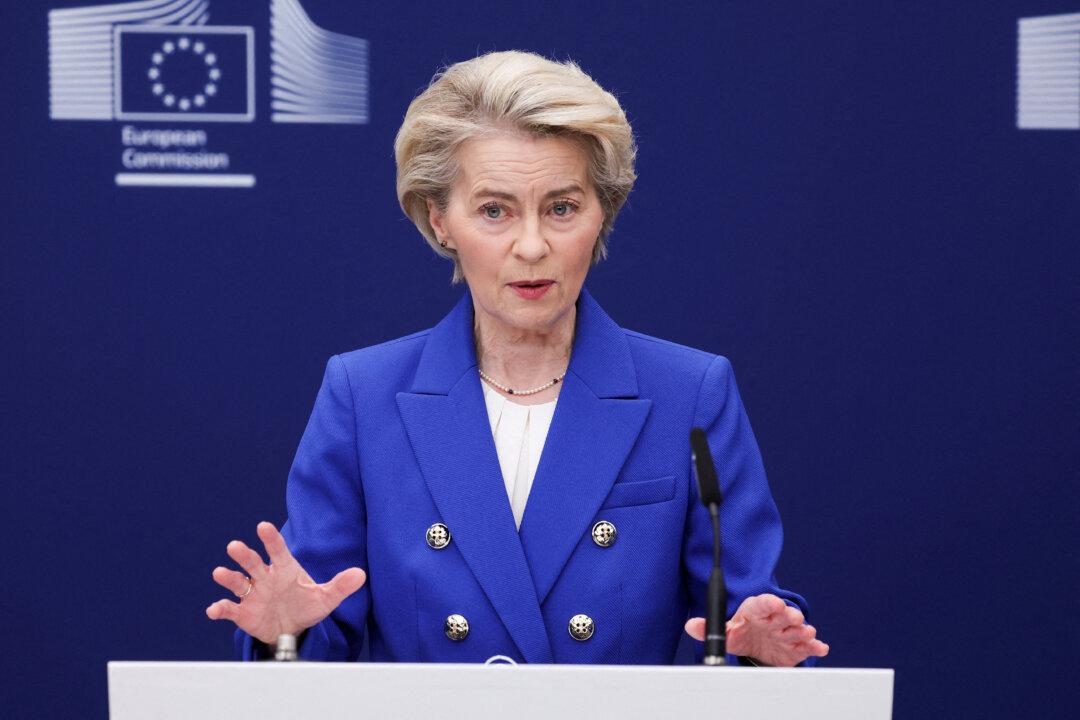The European Union will unveil countermeasures to the latest U.S. tariffs if negotiations with the White House stall, European Commission President Ursula von der Leyen said on April 2, as leaders around the world responded to the new levies.
U.S. President Donald Trump on April 2 unveiled a 10 percent minimum reciprocal tariff on most goods imported to the United States while imposing a higher 20 percent levy on the EU.




